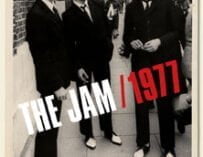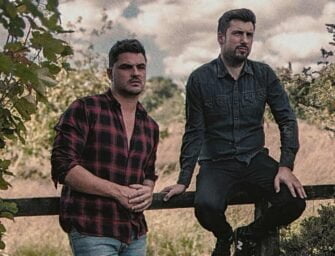The story behind this much-loved new wave hit from 1980 – it’s not actually what popular legend supposes it’s about
Some bands are destined to forever be associated with just one song. Such is the case with British power-pop band The Vapors and their defining tune, Turning Japanese. Formed in Guildford, Surrey in 1978, it was the attention of The Jam’s Bruce Foxton (who later went on to co-manage them) which took The Vapors out of the local pub scene and on tour with Paul Weller and co. During their brief four-year existence, The Vapors released a pair of albums, New Clear Days and Magnets, which married catchy hooks with a slightly experimental and new wave edge.
But the best example of The Vapors’ sound, and their solitary hit, came with Turning Japanese. Produced by Vic Coppersmith-Heaven (another connection with The Jam), the riotous track remains a firm indie disco favourite, and a constant earworm for any who hear it on the radio.
David Fenton, the band’s frontman and songwriter, tells us about the song’s birth – and finally lays to rest those myths about self-gratification…

Released: 25 January 1980
Artist: The Vapors
Label: United Artists
Songwriter: David Fenton
Producer: Vic Coppersmith-Heaven
UK chart position: 3
US chart position: 36
Misc: The Vapors have never performed the song in Japan
“I had the melody for it but I couldn’t find the lyrics. Then I woke up in the middle of the night with that ‘turning Japanese’ line, so I wrote it down and fell asleep again. It could have been anything! It could have ended up as Turning Portuguese. The song was basically there but it took me a few days to get the chorus how I wanted it.
“I’d try and get a song as close to finished as possible and then see how the band would develop it. I didn’t come up with the solo until a week or two after we’d been playing it together. It was a rock ’n’ roll solo to start with, but then I came up with the tune that ended up as the lead line guitar piece. Quite often you finish something and you think, ‘At least that’s finished, I can get it out of the way and move on,’ but with that one, we just kept trying to improve it. The repeating motif wasn’t in the original: it was just in the intro, but then someone came up with the idea of using it before each verse. The motif itself isn’t actually Japanese – it’s Asian, certainly, but it’s more likely to be Chinese, so I got that completely wrong!
“I just wait for the muse, for something to give me an idea. I might hear something on TV or read a line in a book and it sparks something. Different things inspire different people, there’s no regimented route to writing a song. At the time I was into Kurt Vonnegut and listening to bands like Devo, so that all went into it.
“When I played it to the band, the drummer really hated the middle eight, and it was him that came up with the ‘boom splat, boom splat’ in retaliation. I said ‘Keep that, it’s brilliant,’ and so we did keep it. But it was the drummer’s idea to go from a usual 4/4 to the boom splat thing. That’s how things developed. The label really liked it, and that was one of the reasons why we got signed, but we wrote Prisoners as a first single because we didn’t want to lose Turning Japanese, being an unknown band at the time.
“It was weird when people started saying it was about masturbation. I can’t claim that one! That happened when we went to America – for some reason they thought it was an English phrase for masturbation. I thought that was quite interesting, and it made people talk about the song and created more interest, so it didn’t hurt I don’t think, but that wasn’t the intention. It was just a love song.
“I like the tune but it’s not really for me to say why somebody else likes it. I’m just amazed that, 35 years on, it’s still being played on the radio and people are still talking about it. I’ve got no idea what the secret is – if I could do it again then I would! I’m lucky to have it, it would be nice to have more songs but I left the band and stopped doing it in 1981. So it’s my own fault if we’re a one-hit-wonder.”










![Songwriting Credits… best new music playlist [September 2023]](https://www.songwritingmagazine.co.uk/wp-content/uploads/songwriting-credits-september-2023-335x256.jpg)






























Related Articles